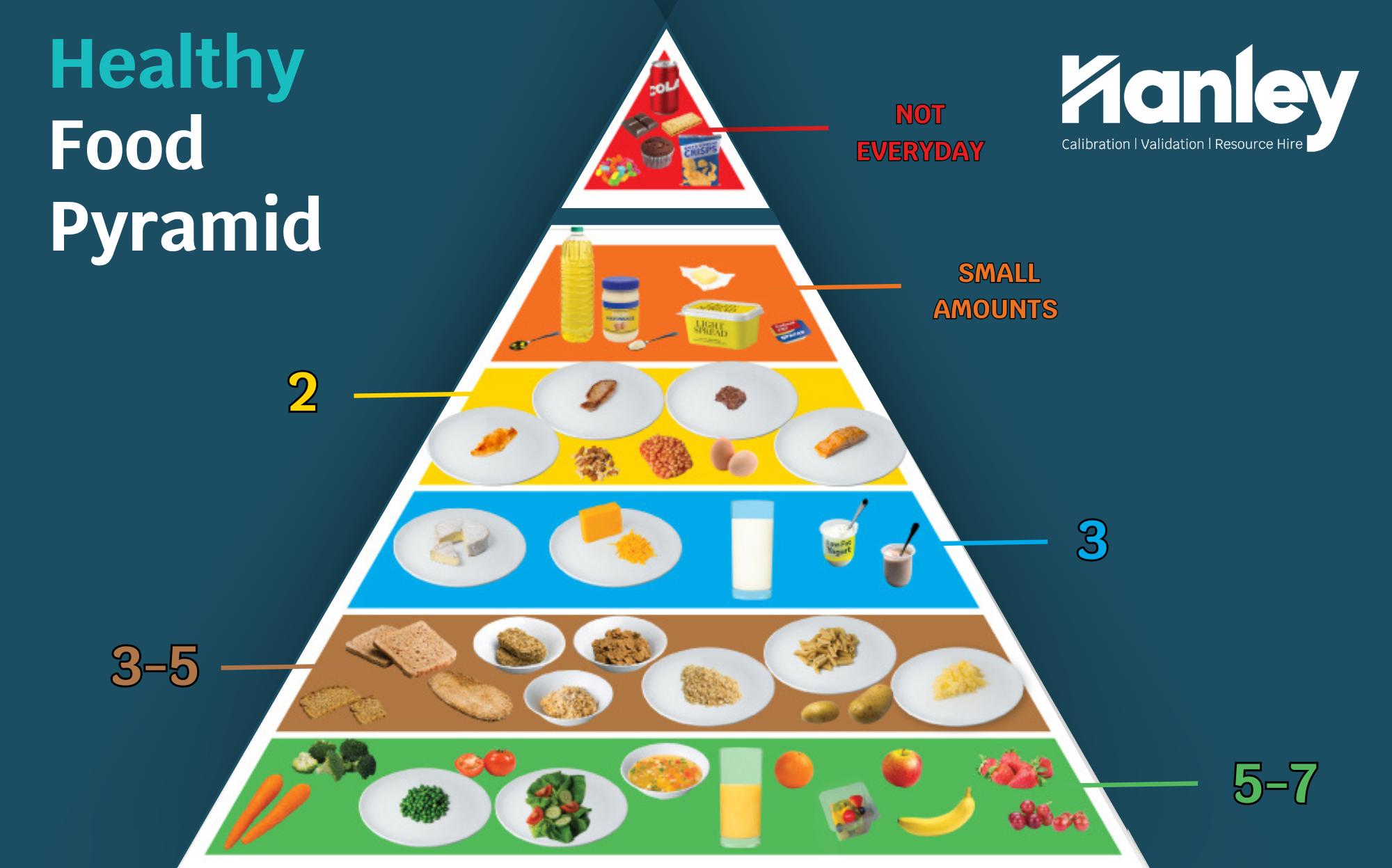Eating healthily is fundamental to our overall well-being. In Ireland, the food pyramid serves as a practical guide to help us make balanced dietary choices. Let’s take a look at what the food pyramid is, its components, and how it can guide us towards making healthier eating choices.
What is the Food Pyramid?
The food pyramid is a visual representation of how different types of food contribute to a balanced diet. Developed by health authorities, including the Health Service Executive (HSE) and Safefood, the food pyramid provides a framework to ensure we get the necessary nutrients from a variety of food sources.
Understanding The layers|
The pyramid is divided into 5 main layers, each representing a different food group and indicating the recommended daily servings for each.

Foods and Drinks High in Fat, Sugar & Salt –NOT EVERY DAY
There are no recommended servings for top shelf as these aren’t needed for good health.
Fats, Spreads and Oils – in very small amounts
A small amount of fat is an essential part of a healthy, balanced diet. Fat is a source of essential fatty acids, which the body cannot make itself. Try to cut down on foods and drinks that are high in saturated fats and replace some of them with unsaturated fats.
Meat, Poultry, Fish, Eggs, Beans and Nuts – 2 Servings a day
Include a variety of lean meat, fish, poultry, eggs, nuts or beans in 2 meals per day. Choose fish up to twice a week – one of these should be oily fish, such as salmon or mackerel. These foods provide an important source of protein. Lean red meat is also a good source of iron. Limit how often you eat processed meats.
Milk, Yoghurt and Cheese – 3 Servings a day
Choose low-fat milk, yogurt or cheese. Low-fat options have the same amount of calcium as full fat. Choose milk and yogurt more often than cheese. These foods provide us with protein and calcium, which is important for healthy bones and teeth.
Wholemeal Cereals & Breads, Potatoes, Pasta and Rice – 3-5 Servings a day
Wholegrain and wholemeal choices contain vitamins and fibre to help keep your digestive system healthy. Wholemeal breads, cereals and potatoes provide the best energy for the body to work.
Fruit and Vegetables – 5-7 Servings a day
Base your meals on plenty of vegetables, salads and fruits. They provide many important vitamins, minerals and fibre.

Did You Know?
Cholesterol does important work in your body It helps make the outer coating of cells. It allows the body to make Vitamin D and hormones, like estrogen in women and testosterone in men. Not all Cholesterol is the same.
The two main types of cholesterol are:
Low-density lipoprotein (LDL) – also known as ‘bad’ cholesterol because it can add to the build-up of plaque (fatty deposits) in your arteries and increase your risk of coronary heart disease.
High-density lipoprotein (HDL) – also known as ‘good’ cholesterol because it can help to protect you against coronary heart disease.
If you are trying to lower your cholesterol, aim to eat foods that are high in dietary fibre, because they can reduce the amount of LDL (bad) cholesterol in your blood.
The food pyramid is a valuable tool for guiding healthy eating in Ireland. By following its recommendations, you can ensure a balanced diet that supports overall health and well-being. Remember, it’s not just about what you eat, but also how much and how often. Embrace the food pyramid as part of your daily routine and take steps towards a healthier, happier you.
For more information, visit Safefood and the HSE’s Healthy Eating Guidelines.


